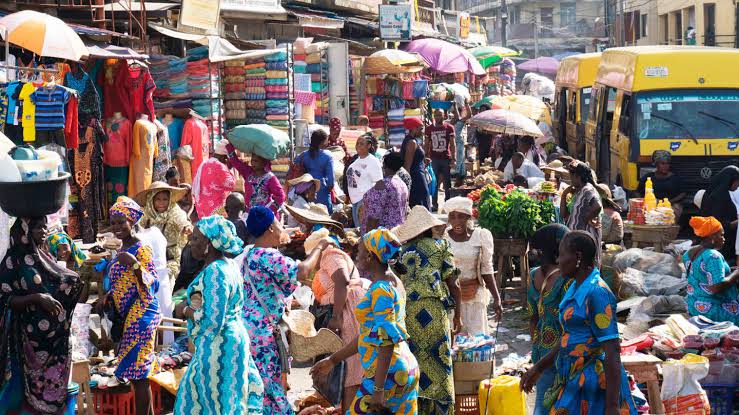The 2024 Nigerian Food Security Index (NFSI) report released by The Nigeria Food Security Project (NFSP), has revealed the escalating food security challenges across Nigeria, demanding immediate action from policymakers and stakeholders.
Analyzing data and trends from 2023 to 2024, the report reveals alarming increases in poverty levels across numerous states, jeopardizing the food security of millions of Nigerians.
The report that was sighted by Sunday Telegraph identifies a surge in the number of people living below the poverty line, a trend fueled by persistent inflation, economic instability, and sluggish recovery from global economic downturns.
This alarming rise in poverty directly impacts access to nutritious and sufficient food, further deepening the food insecurity crisis.
Shockingly, even Lagos, often considered Nigeria’s economic powerhouse, has witnessed a dramatic increase in its indigent population, highlighting the widespread nature of this crisis.
Highlighting some major concerns, founder and pioneer of the Nigeria Food Security Project, Adebayo Adeleke, explains the importance of the nuances that this report deals with, in the economy of Nigerian Food.
According to him, the true reflection of Nigeria’s food security has been absurd for quite some time. The nuances of the country’s food system, from the informal economies of farms and markets to the logistical networks that have not been fully formalized, require a Nigerian-centric approach to truly understand the complexities and provide the surgical insights needed to address this critical issue.
He added that food security, like any form of security, is inherently local, which is why a tailored food security index for Nigeria is crucial in examining the affordability, availability, sustainability, and quality of the food we consume.
“Nigeria is grappling with multiple, intertwined challenges impacting its food security. A rapidly growing population is straining agricultural production and supply chains, while a troubling rise in poverty is making food unaffordable for many,” Adeleke said.
“Adding to these issues, a severe shortage of state-owned storage facilities hampers efficient food reserve management, making stored food susceptible to spoilage. Furthermore, significant increases in food prices disproportionately affect vulnerable populations, further diminishing their access to food.
“The Global Food Security Index (GFSI) provides a valuable global overview but doesn’t fully address the unique circumstances of a nation as diverse as Nigeria. The Nigerian Food Security Index (NFSI) is specifically tailored to address these unique socio-economic and agricultural conditions.
“The NFSI analyzes key factors like population growth, income distribution by state, poverty levels, agricultural budgets, food price changes, and food storage availability to provide a detailed and accurate assessment of Nigeria’s food security situation.
“By offering a precise understanding of regional differences and the interplay of various factors, the NFSI helps policymakers, development agencies, and stakeholders make informed decisions about resource allocation, agricultural investments, and targeted interventions.
“It identifies the most vulnerable populations and regions, ensuring resources are directed where they are most needed. Moreover, the NFSI tracks progress over time, allowing for evaluation of policy effectiveness and identification of areas needing further attention.
“In short, the NFSI acts as a guide for creating a more resilient and food-secure future for Nigeria by addressing the country’s specific challenges and informing the development of effective and sustainable solutions.
“Additionally, this report serves as an urgent call to action, emphasizing the critical need for swift and comprehensive interventions to reverse these negative trends and ensure a food-secure future for all Nigerians.”
Speaking further on the report, Adeleke said NFSI offers specific recommendations to address these challenges, including increased investment in agricultural infrastructure and targeted poverty alleviation programs.
“A full examination of the report’s findings and recommendations is crucial for understanding the complexity of the issues and the steps needed to improve food security for all Nigerians.”








